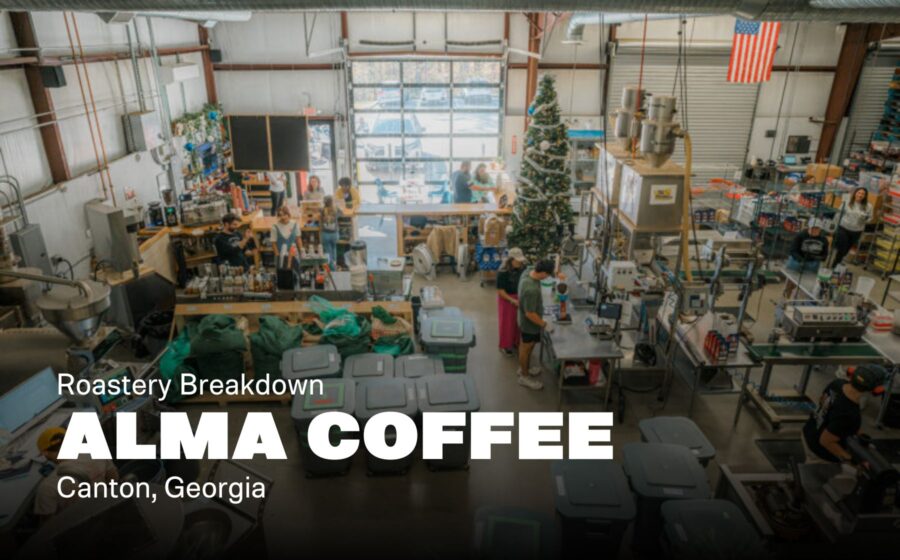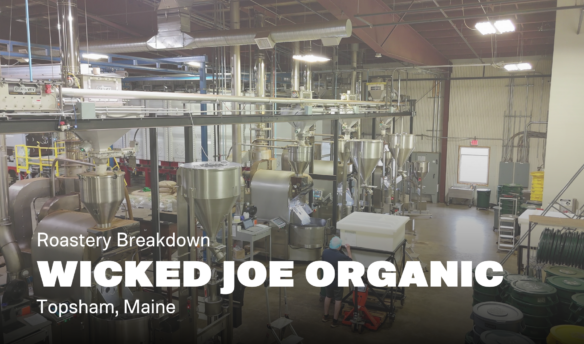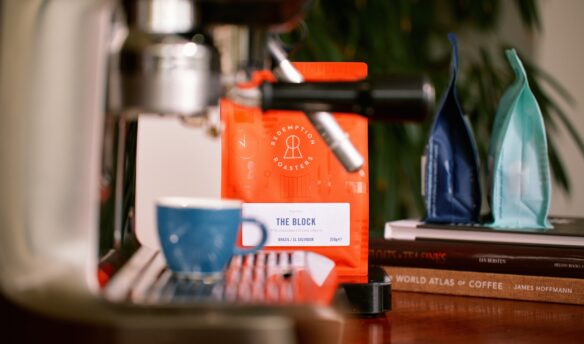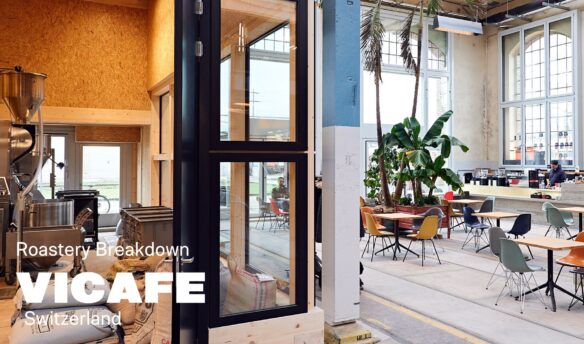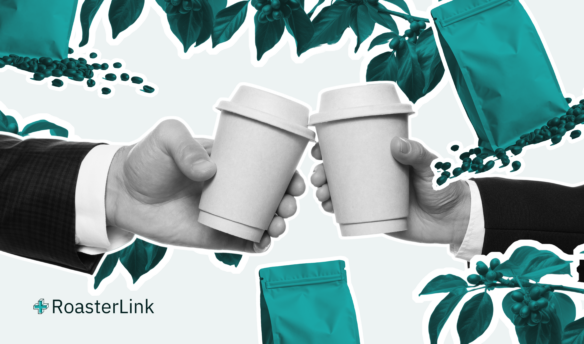The Roastery Breakdown series is presented by our partner, Loring.
What truly goes into a single cup of coffee? The drink you pour into your mug is the end result of a long process—a process often discussed but rarely seen from beginning to end.
Leticia and Harry Hutchins wanted to go beyond the cup with their roastery, Alma Coffee. Based in Canton, Georgia, Alma pulls in the experiences and insights from generations of coffee producers and connects the work and care done on Leticia’s family farms to the coffee being roasted and served in their cafe.
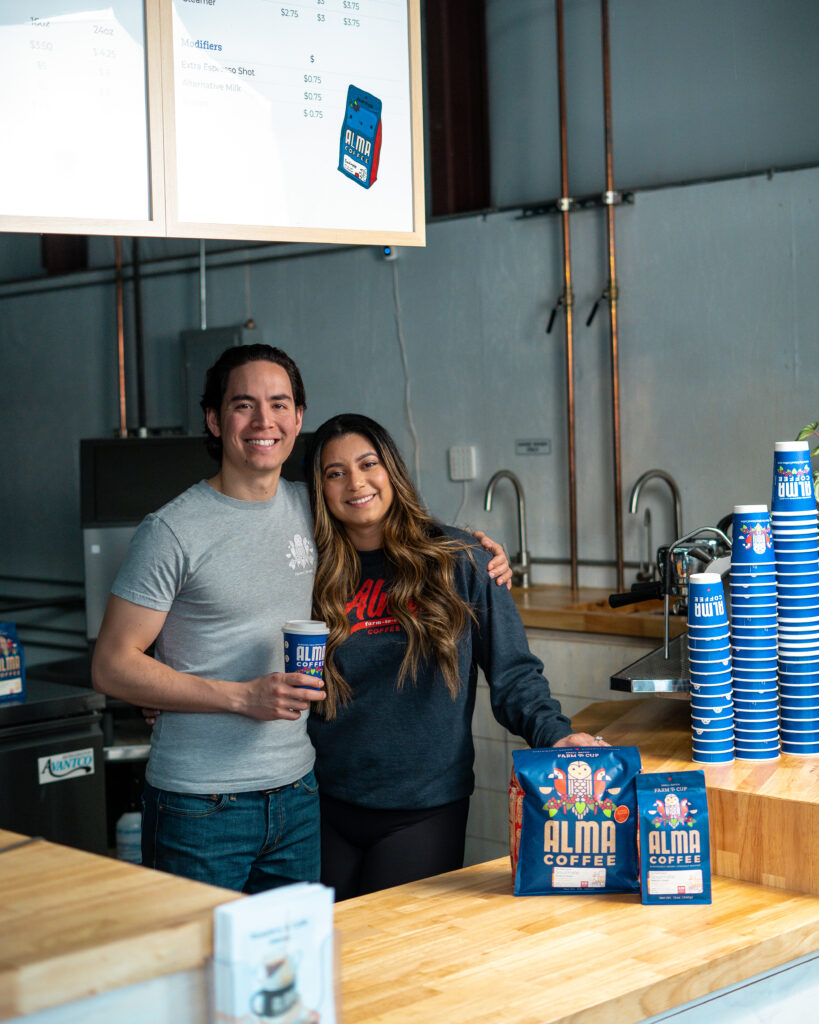
“Truly, from farm to cup, our family touches every step of the process, controls every single aspect of it,” says Leticia, who believes that offering a comprehensive coffee experience and bringing customers in on the journey makes Alma’s coffee truly unique. “Quality is our number one.”
Every Step of The Process
Leticia’s family has grown coffee and operated coffee farms in Honduras for five generations. But the story of Alma starts in Chicago, where Leticia and Harry were living. Both accountants, the duo began building out a career pivot in 2018 and came up with a plan: to move to Georgia to start a roasting company and bring their family’s coffee directly to consumers for the first time.
“We went from concept to execution in under a year,” Leticia says. By April 2018, the pair had quit their jobs. “We were on a flight to the SCA [Expo that April] and were willing to learn literally anything we could,” says Leticia. “We had read books, we had googled stuff, but we hadn’t worked in a roastery or operated a machine before, so it was all really new.”
Later that month, they moved to Georgia and began searching for a location for their roastery. “In July, we launched our e-commerce business and focused on local pop ups, such as farmers markets, to spread the word about our brand,” says Leticia. “By December, we closed on our current location.”
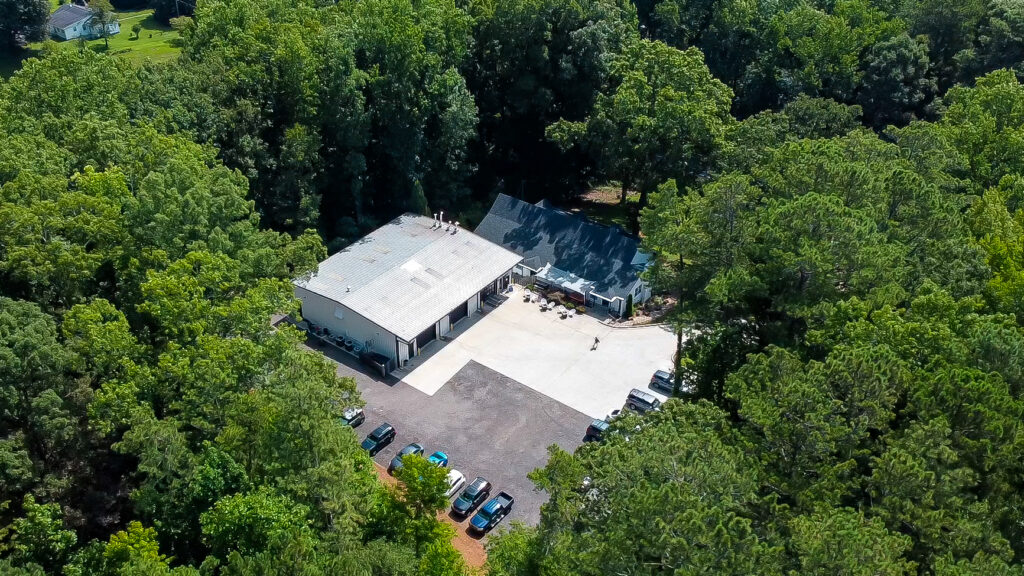
As they built Alma, Leticia says they relied heavily on a set of values that both shape the roasting operation and choices on the farm. “Any decision we make, anything we are looking to do, we always come back to [our] three pillars: improving lives, sustainable practices, extraordinary coffee,” she says.
One of the ways they focus on the first pillar—improving lives—is by investing in education on their farms. Recently, Alma built a school for the children of coffee workers in Honduras. “During harvest season, we will have 250 families move onto the farm with us,” says Leticia. “When a family moves, they bring their kids and it’s like, ‘What do the kids do?’” The school is free for all the children of workers who come to the farm for harvest.
Alma extends its mission to improve lives through a program they call Alma-doptions. They will take on the harvest of a coffee farm run by people they know and pledge to either roast it themselves or sell it to other like-minded coffee roasters committed to ethical sourcing practices. “We make sure it gets a good home,” says Leticia, “[and] make sure that they are paid upfront unlike having to wait and do a sort of consignment system.”
On the roastery side, improving lives looks like investing in culture. “We want everyone to have fun where they work and be able to work hard and see the results of that.” Alma offers benefits to its employees, such as a paid trip to their farm in Honduras after two years of employment and other opportunities to travel. Leticia says these opportunities allow their employees “to see that there’s more to coffee than just what happens in our roastery because it can be really easy to get caught up in what you’re doing every single day.”
Fast Facts
Roastery Location: Canton, Georgia
Square Footage: 4,500 square feet with 3500 square feet of office/quiet seating space
Retail and/or Wholesale Roasting: Retail and wholesale
Keeping it Green
Alma’s second pillar is sustainability, so it’s no surprise that eco-friendly practices are a high priority. Leticia says that choosing a Loring was an obvious choice for the roastery because “they’re super efficient and put out fewer emissions than other roasters.”
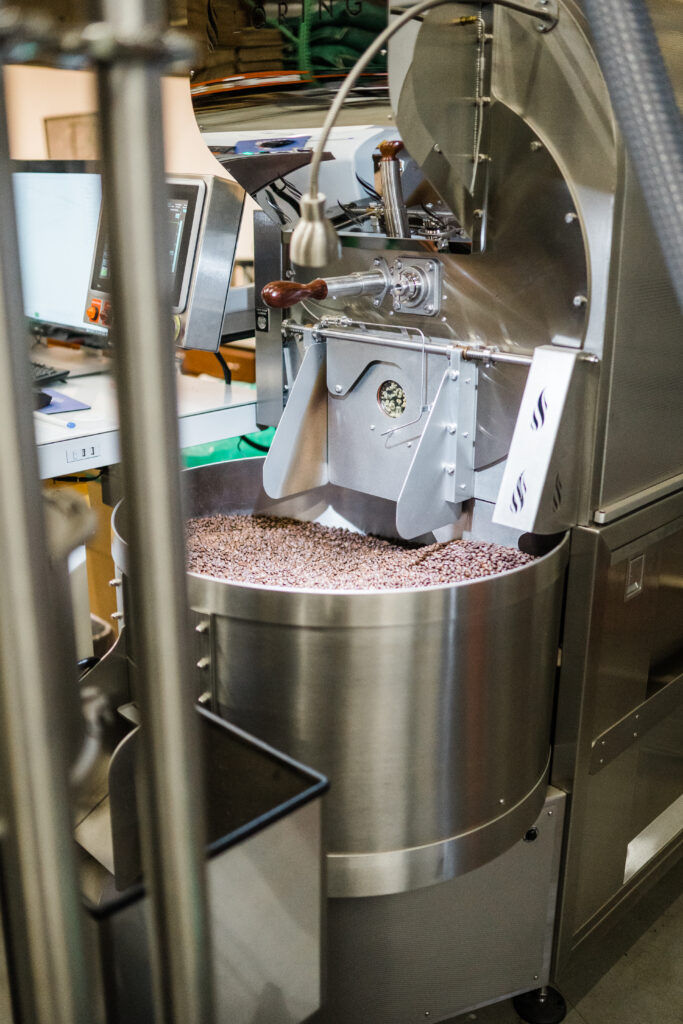
The roasting team started with a Loring S15 Falcon (capable of roasting 15 kilograms at a time) in 2018 and acquired a larger S35 Kestrel as the business grew. Among all the roasters on the market, Leticia says that they chose a Loring because it aligned with their sustainability initiatives.
Alma also uses 100% recyclable mailers for online orders wherever possible. The roastery’s eco-friendly mission extends to the farm: their farm is a USDA certified organic and they use runoff from the coffee washing station as an organic pesticide.
Transparency Flows
Alma’s coffee shop lives inside its roasting space instead of being two separate spaces. “Originally, we didn’t open a coffee shop,” says Leticia, who says people enjoy sipping on their coffee as they watch the roasting process. “We have our regulars, and they just love to come and watch us work.”
Leticia says the fact that the roastery is visible from the cafe is a conversation starter with customers. “Because usually, [customers will] come in and point at the weigh-fills and be like, ‘Oh my gosh, are those the roasters?’ Instantly, we can be like actually, those are weigh fills, and [we can explain] how they work, and we can point out the roasters and talk about how they work, so we love that because it’s a way that we can have an education touch point without coming off snooty or like a know-it-all.”
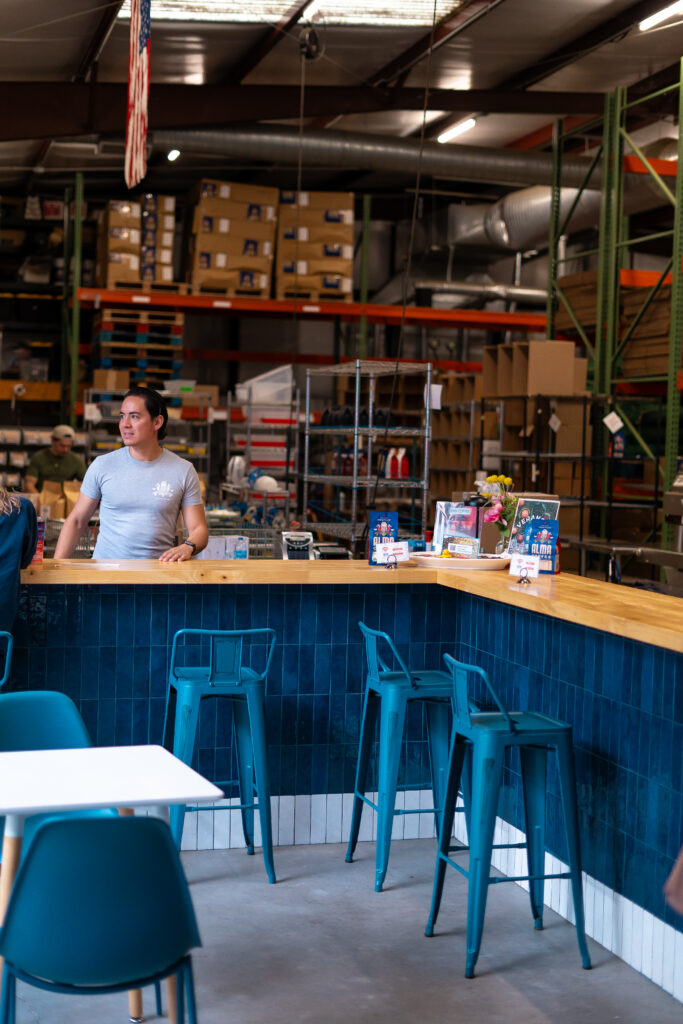
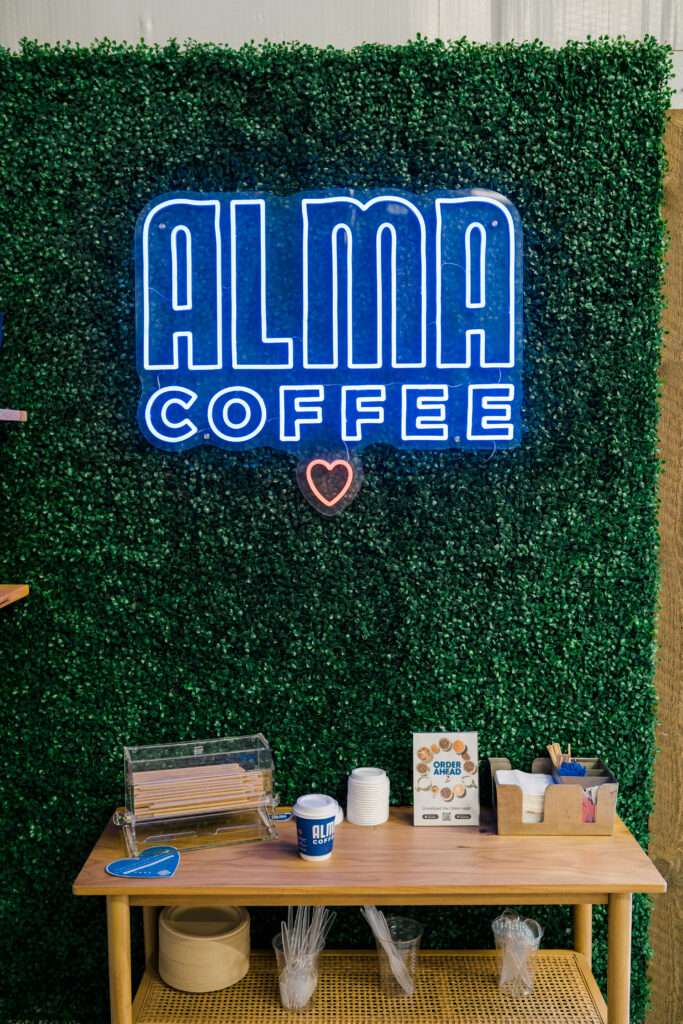
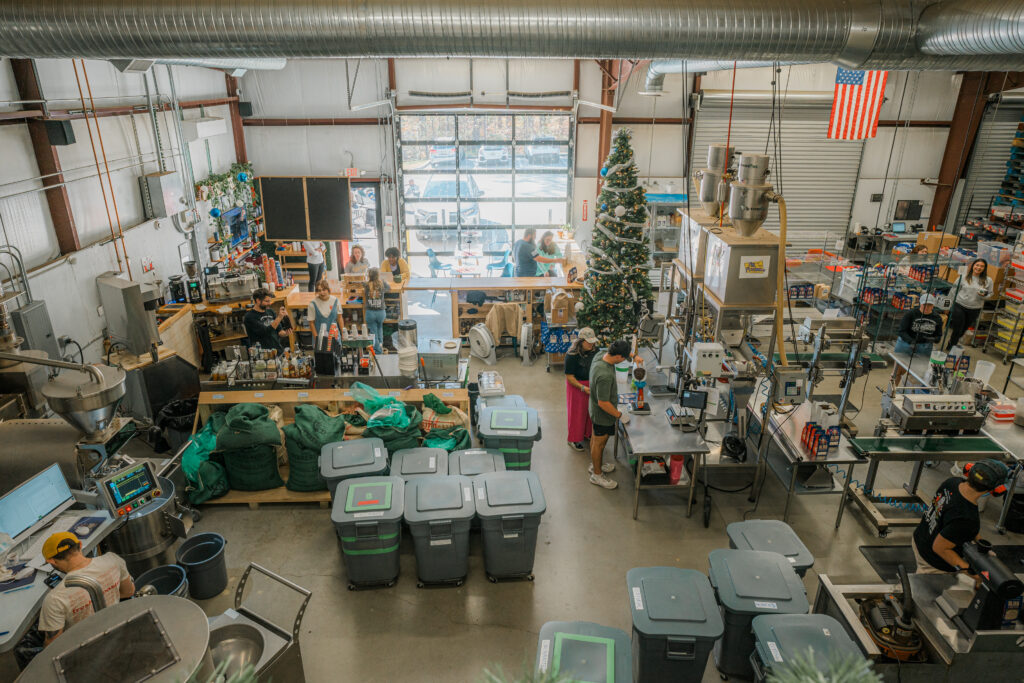
Many of the design and equipment choices Alma made support the idea of transparency and encourage free flowing conversations between the roastery, baristas, and customers.
Packed to Order: When customers walk into Alma’s cafe and roastery space, they will notice there are no coffee bags on the shelves. Keeping in line with Alma’s views on transparency and freshness, every bag of coffee is packed to order. Not only is this to ensure folks are getting freshly roasted coffee but it is also a way to share the roasting and packaging process with the customer.
Customers can watch their coffee get bagged, ground (by request), sealed, and handed to them. “If you aren’t in this coffee industry, you wonder what [that process] looks like,” Leticia says. “How do these bags get filled? It’s really cool to see it go from the roaster to you.”
Training and QC Lab: The backbone of every roastery (especially ones that do wholesale business) is the training and QC lab. At Alma, this is where a lot of the action happens, from cuppings to training—the team even uses the space to make syrups for the cafe.
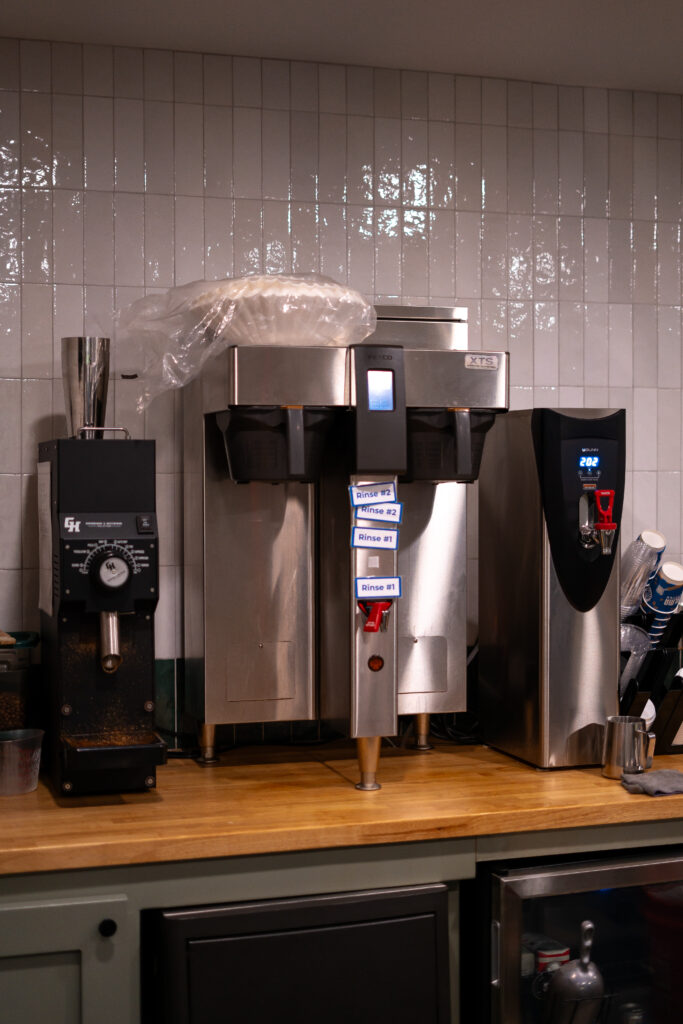
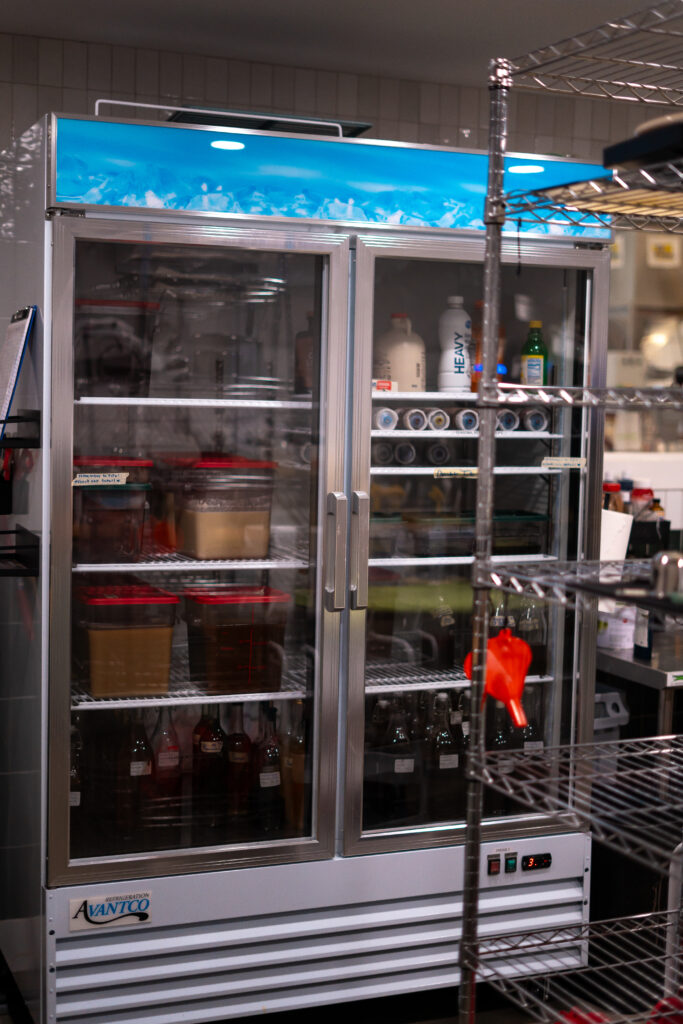
The lab is equipped with two espresso machines, a Slayer and a small La Marzocco, and supplies for pour overs and making cold brew. “We are very loyal to Mahlkonig for all our grinders but,” Leticia says about what equipment they carry in the lab, “in terms of brewing equipment, we go off relationships we have formed throughout the years with individuals at SCA and other coffee events.”
Weigh Fills: “[Weigh fills are] something that we got two years ago, and before that, we were hand-filling everything,” Leticia says. Weigh fills help the Alma team bag coffee quickly without having to stop to weigh everything manually. “[The weigh fills] have been a huge help in terms of efficiency and posture for our employees. I mean, when you’re bending down, it’s not going to feel good after an eight-hour shift.”
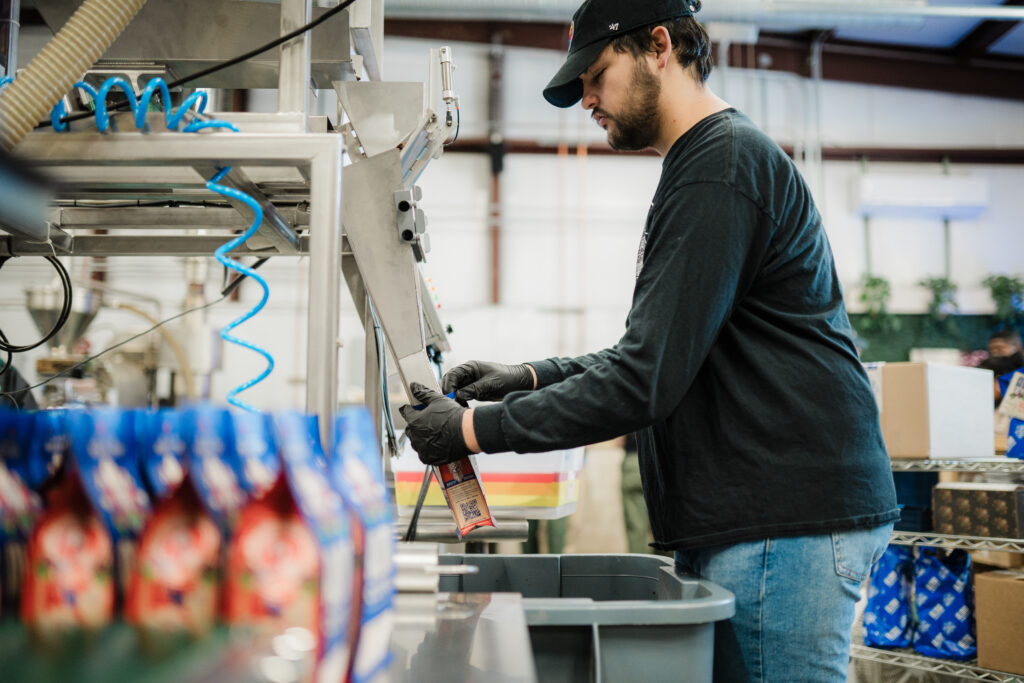
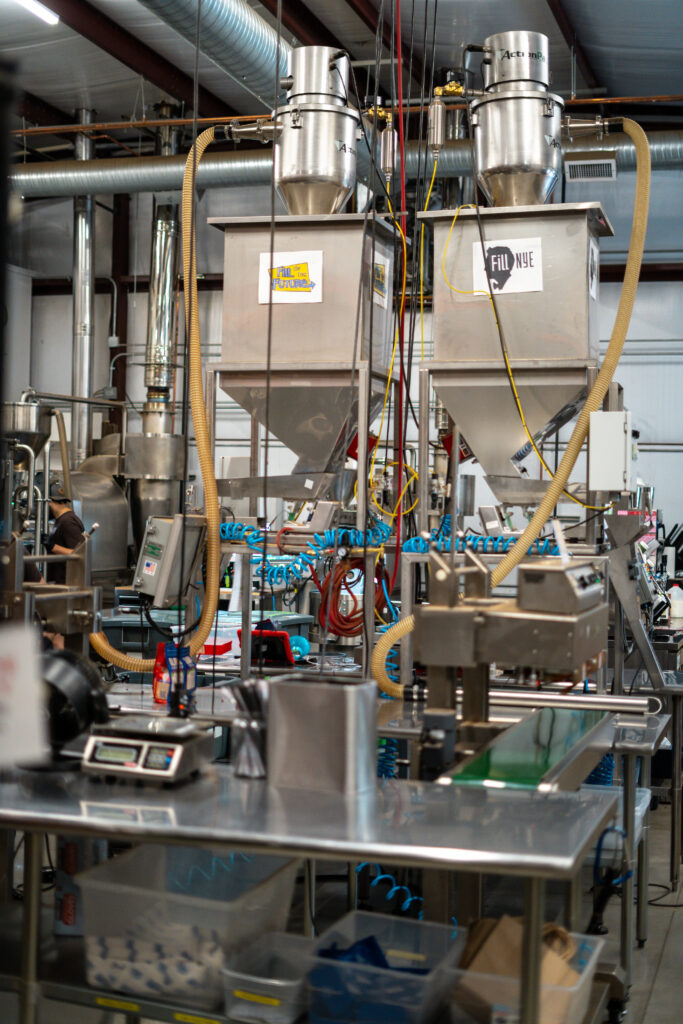
KDS System: A Kitchen Display Screen system is not often found in a roastery, but at Alma, it helps keep track of orders for coffee bags and refills. “The KDS allows different teams to see exactly what they need to do to take care of that customer in a timely fashion.”
When a customer comes into Alma to order coffee beans (since there are no retail bags on the shelf), they pick from the current coffee offerings and get rung up at the register. The coffee order will pop up on the KDS and the production staff will make that bag or refill the customer’s reusable canister. “It’s going to be like 3-5 minutes, but it helps our fulfillment team say, ‘Hey, we have a fresh bag coming up.’”
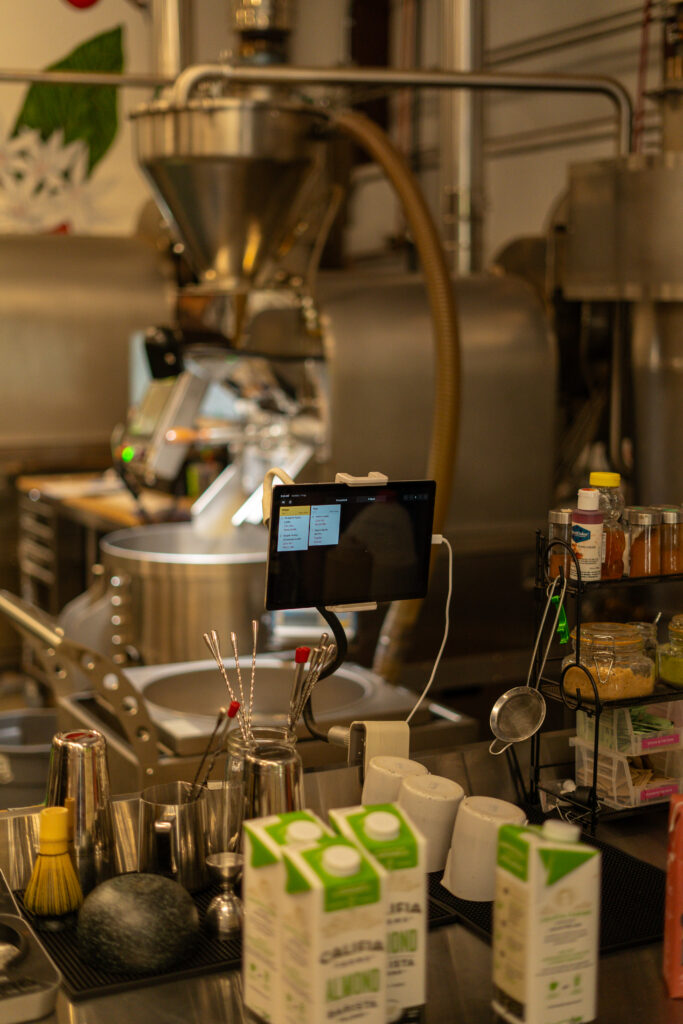
Keep It Cool: Having a cafe inside a roastery means the folks at Alma have to think about climate control. Temperatures in Georgia during the summer can be high, and the humidity can impact roasting, so the space is climate-controlled with air conditioning splits throughout to keep the temperature as regulated as possible.
Quiet Space: Coffee roasting is noisy, which can be tough for customers trying to quietly enjoy a cup of coffee in the cafe part of Alma’s space. “I will say the noise level can get a little high sometimes,” says Leticia. But Alma has a quiet space away from the noise for patrons to enjoy coffee.
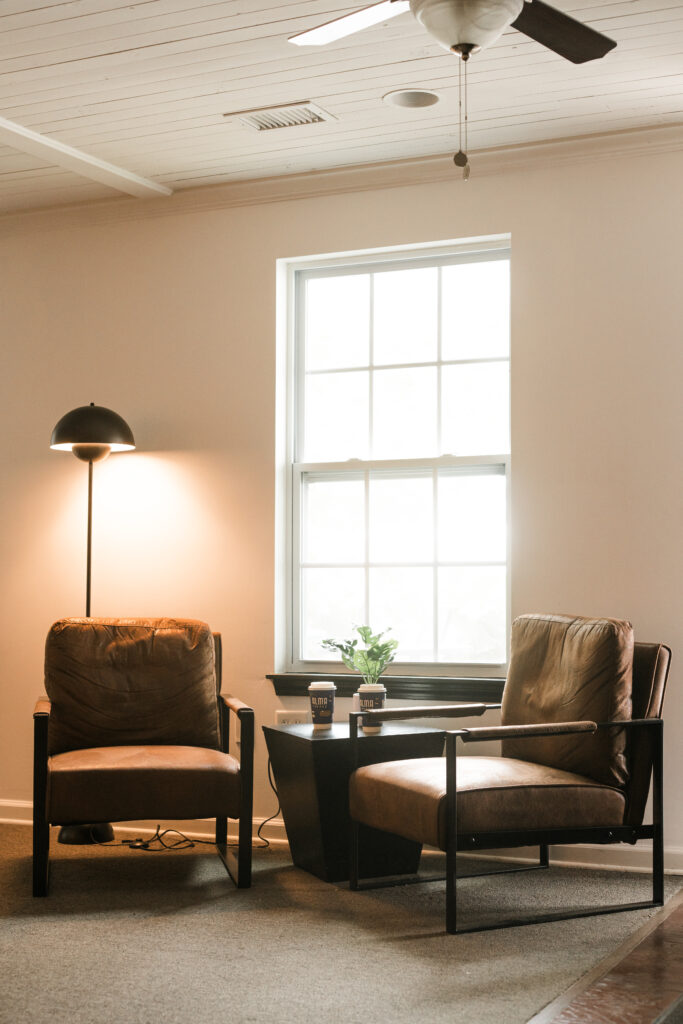
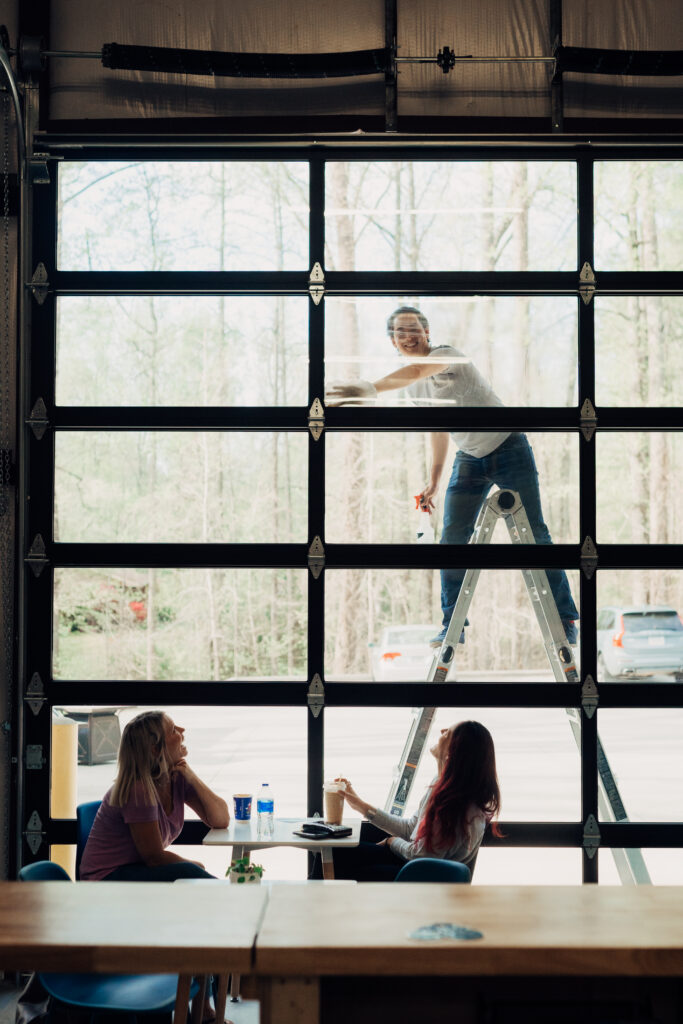

“If you just want to read a book, get some work done, have a zoom call, whatever it is, then you can go in that quieter space. We also have a great outdoor space: a huge patio in front of our office space with Adirondack chairs and fire pits.”
All For Extraordinary Coffee
The last pillar Alma built its values around is excellent coffee, and every team decision is in service of that goal. With so many moving parts, keeping on top of everything happening within the roastery can be challenging, but Leticia says it all comes back to adhering to the brand’s values. “If we’re hitting those goals, we know we’re on the right track.”



